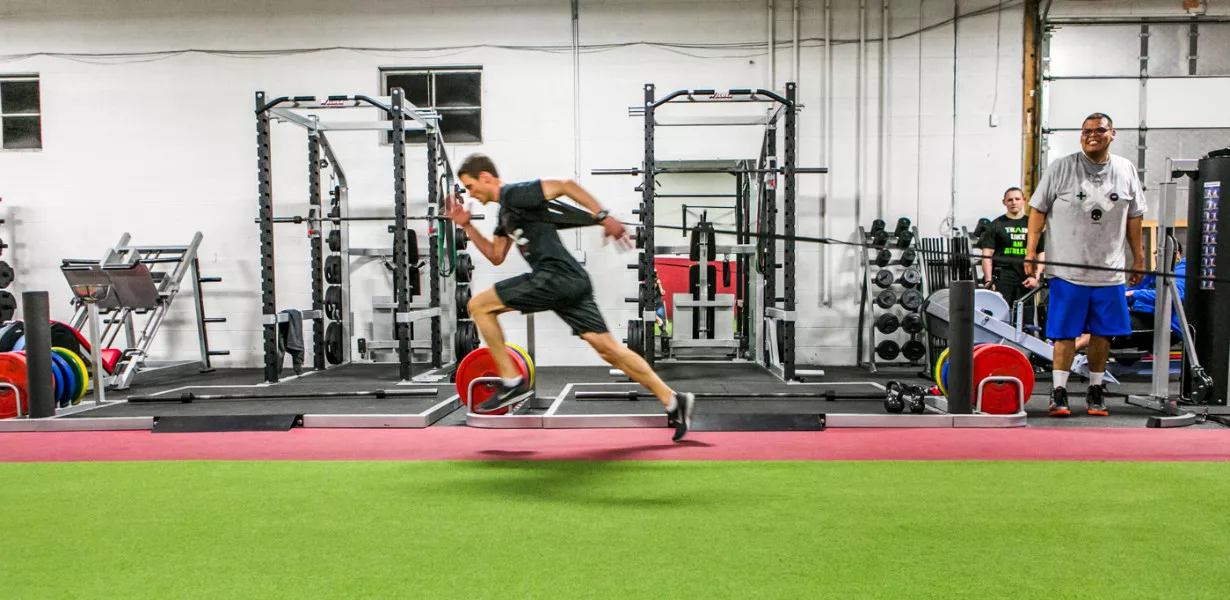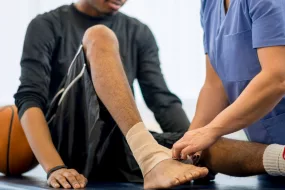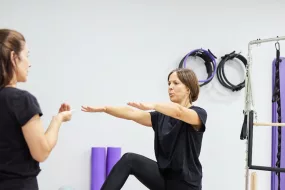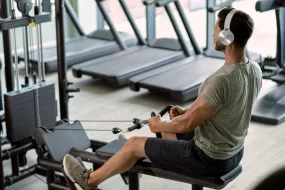
Welcome to our comprehensive guide on sports-specific training, where we delve into the world of specialized training programs designed to enhance athletic performance. Whether you’re an aspiring athlete or a seasoned sports enthusiast, understanding the importance of sport-specific training is essential to reaching your full potential. In this article, we will explore the intricacies of sports-specific training, provide actionable tips to optimize your training routine, and guide you towards finding sport-specific training facilities near you.
The Power of Sport-Specific Training
Unleashing Athletic Excellence
Sport-specific training focuses on developing the specific skills, movements, and physical attributes required for a particular sport. While general fitness training can lay a foundation, sports-specific training hones in on the specific demands of your chosen sport. By tailoring your training regimen to mimic the movements and conditions you encounter in your sport, you can unlock your true athletic potential and gain a competitive edge.
The Science Behind Sport-Specific Training
Sport-specific training programs are rooted in scientific principles and biomechanics. They aim to improve sport-specific skills, enhance muscular strength and power, enhance agility and speed, and optimize cardiovascular endurance—all within the context of your chosen sport. By engaging in exercises and drills that closely mimic the movements and energy systems required in your sport, you can improve performance while reducing the risk of injury.
Tips for Effective Sport-Specific Training
1: Analyze the Demands of Your Sport
To create an effective sport-specific training plan, start by thoroughly analyzing the unique demands of your sport. Identify the specific skills, movements, and physical attributes that are critical for success. For example, a soccer player may need to focus on agility, quick changes in direction, and lower body strength, while a basketball player might prioritize vertical jumping ability and lateral quickness. Understanding these nuances will guide you in tailoring your training to address these specific needs.
2: Integrate Skill-Specific Drills
Incorporating skill-specific drills into your training routine is crucial for developing proficiency in your sport. These drills focus on refining technique, improving coordination, and enhancing sport-specific skills. For instance, a tennis player might engage in drills that emphasize precise racket control, footwork, and shot accuracy. By dedicating time to these drills, you can fine-tune your abilities and enhance your overall performance in your sport.
3: Periodize Your Training
Periodization is a key principle in sport-specific training that involves dividing your training program into distinct phases, each with specific goals and training emphasis. These phases typically include an off-season phase for rest and recovery, a pre-season phase for building foundational strength and endurance, an in-season phase for maintaining performance, and a post-season phase for recovery and regeneration. By following a periodized approach, you can optimize your training adaptations and ensure peak performance during competitive periods.
FAQs about Sport-Specific Training
Q1: Can sport-specific training benefit beginners?
Absolutely! Sport-specific training is beneficial for athletes of all levels, including beginners. By starting with a strong foundation of sport-specific movements and skills, beginners can develop proper technique and lay the groundwork for future progress and performance.
Q2: How often should I engage in sport-specific training?
The frequency of sport-specific training will depend on various factors, including your sport, training goals, and overall training volume. In general, it is recommended to dedicate at least 2-3 training sessions per week to sport-specific exercises and drills.
Q3: Are sport-specific training facilities available near me?
Yes, sport-specific training facilities can often be found in fitness centers and specialized training centers. Conduct a local search for “sport-specific training” or “sport-specific training near me” to discover facilities in your area.
Q4: Can sport-specific training help prevent injuries?
Yes, sport-specific training can contribute to injury prevention. By strengthening the muscles and joints involved in your sport and improving movement mechanics, sport-specific training can reduce the risk of injuries caused by imbalances, poor technique, or inadequate physical conditioning.
Q5: How long does it take to see results from sport-specific training?
The time it takes to see results from sport-specific training varies depending on factors such as individual abilities, training consistency, and the intensity of the training program. However, with consistent and dedicated effort, improvements in performance can often be observed within a few weeks to a few months.
Conclusion
Sport-specific training holds the key to unlocking your athletic potential. By tailoring your training to the unique demands of your sport, integrating skill-specific drills, and following a periodized approach, you can enhance your performance and take your abilities to new heights. Remember to analyze the specific requirements of your sport, seek out sport-specific training facilities near you, and embrace the journey of continuous improvement. With sport-specific training, you can elevate your game and achieve the results you’ve always dreamed of.
Advertisement









